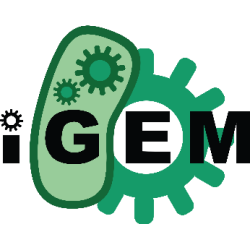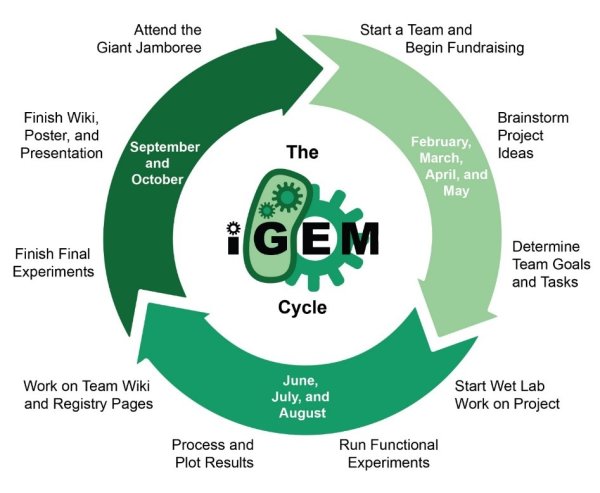We are active in the following focal points:
Faculty of Biology and Biotechnology
Faculty of Chemistry and Biochemistry

Are you interested in the field of synthetic biology?
Are you fascinated by solving everyday problems through interdisciplinary research?
Would you like to work with others to develop solutions to the world's everyday problems?
iGEM - What is it?
International Genetically Engineered Machine Foundation, or iGEM, is a non-profit organization dedicated to promoting synthetic biology, education, and the development of an open, collaborative community since 2003.
Through their international iGEM competition, they enable students of all backgrounds to push the boundaries of synthetic biology by tackling problems in their own lives or everyday problems in the world, and working together to find solutions.
Synthetic biology as a field encompasses, in addition to biology, various disciplines such as (bio)chemistry, nanobiotechnology, computer science or engineering, in order to jointly develop new biological systems or modify existing ones.
What do you do at iGEM?
During the iGEM competition, students, in a multidisciplinary team, work on a self-designed, challenging project that can make a positive contribution to the world. Using standard molecular biology techniques, the project is built, measured, and tested so that laboratory practices and basic theoretical knowledge can be learned in the process. In addition, outreach, networking and cooperation with other teams or from industry is also part of the project.
In addition to support from (post-) graduate students and professors at the university, iGEM provides various resources to help the teams in their responsible, beneficial work.
In the fall of each year, the achievements of the teams distributed around the world are celebrated together at the annual Jamboree (2021 in Paris). There, the projects are presented and medals, prizes, and the main prize, the BioBrick trophy, are awarded.
Why shall I become a part of iGEM?
Participation in the development of innovative projects through iGEM already provides first insights into current research topics in synthetic biology. In addition to various scientific and business skills, e.g. project funding, science communication or presentation can be learned.
Furthermore, first contacts with different institutions, professors of the university or with the economy are established. Through international networking within iGEM, new acquaintances can also be created worldwide.
As the iGEM community grows from year to year, the iGEM certificate is also a good reference for future applications.
When does iGEM take place?
At the beginning of each year, teams are formed and a self-designed project is developed and organized. Over the summer, the project is developed, both inside and outside the lab, so that in fall the teams, from over 45 countries, come together at the annual jamboree to present their work and compete in friendly competition.

How can I become a iGEMer?
Activate yourself, interact with students and gather information, or contact Prof. Dr. Dirk Tischler.
More information are available available at: https://igem.org/